Stolen Memories
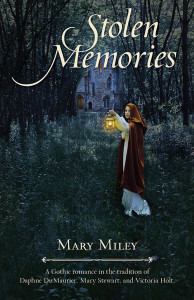 A brutal attack along the banks of the Seine in 1928 leaves a young Englishwoman close to death in a Paris hospital, without a memory in her head. She soon comes up against a vengeful husband who accuses her of the theft of priceless art, the French gendarmes who have linked her to a murder on the Riviera, and a scorned lover who is trying to kill her. The husband, believing his wife’s amnesia is faked, spirits her away to an ancient chateau in the French province of Champagne, where prehistoric dolmens and standing stones dot the fields and caves hewn out of limestone are used for more than storing wine. But who is trying to poison her and bury her in an avalanche of slate? Who is laying a trap for her deep within the wine caves of Champagne?
A brutal attack along the banks of the Seine in 1928 leaves a young Englishwoman close to death in a Paris hospital, without a memory in her head. She soon comes up against a vengeful husband who accuses her of the theft of priceless art, the French gendarmes who have linked her to a murder on the Riviera, and a scorned lover who is trying to kill her. The husband, believing his wife’s amnesia is faked, spirits her away to an ancient chateau in the French province of Champagne, where prehistoric dolmens and standing stones dot the fields and caves hewn out of limestone are used for more than storing wine. But who is trying to poison her and bury her in an avalanche of slate? Who is laying a trap for her deep within the wine caves of Champagne?
ebook: $4.99; paperback: $9.99 on Amazon
Reviews:
Set in Paris in 1928, this suspenseful novel from Miley (author of Silent Murders) will appeal to fans of the classic movie Gaslight. After surviving being thrown into the Seine, the unidentified narrator wakes in a hospital to find that she can’t recall her name or anything else about her life. Although the passport found in her purse identifies her as Eva Johnson, she refuses to accept that name. She’s haunted by feverish dreams involving lost paintings and a lost little boy, and her conscious moments are also a torment, especially after she’s confronted by Alexander DeSequeyra, a man claiming to be her husband. Her alarm only grows after hearing that Alexander committed a murder years earlier, but escaped conviction due to his wealth and influence. She becomes even more isolated after Alexander arranges her discharge from the hospital into his care, having overcome the doctor’s medical objections with a hefty bribe. Miley keeps the twists coming—and the reader guessing—to the end. –Publishers Weekly, April 4, 2016
Miley’s ability to convey the beautiful yet menacing atmosphere of Champagne is remarkable, and her sense of pacing keeps Stolen Memories gripping throughout, especially in the climactic chapters when a series of shocking revelations upends the whole story. Very satisfying. —Historical Novels Review, August 1, 2016
Possible Book Club Questions for STOLEN MEMORIES
1. The story is set in France and England in the Roaring Twenties. How did their experience in the 1920s differ from the American experience?
2. Were American women ahead or behind the French and English in the area of women’s rights?
3. When does Eva/Claire begin to question her identity? Why does she initially explain away her doubts?
4. Dr. Thomas J. Barnardo was a real person who died in 1905. Was he correct, that heredity counted for very little and environment was everything? Would Eva have become Claire and Claire Eva if they had been adopted by the other’s parents?
5. Clearly, both heredity and environment (nature and nurture) play a role in every person’s development, but how would you rank the importance of each?
6. Did you have a grandmother or older relative who told you about the first time she voted?
7. Did you recognize any of the other characters in the book, beside Dr. Barnardo, as being “real?”
Opening chapters of STOLEN MEMORIES
Prologue
They say Paris is for lovers, but Tadeuz Zdrojewski hadn’t found one yet.
Still unaccompanied after two bars and one jazz hall, he and his shipmate tried to overcome the communication barrier with a middle finger gesture they’d learned during the Great War, but the move only landed them in the stone gutter outside the Bar d’Austerlitz. Swearing at their wretched luck and dwindling shore leave, the two sailors were untangling their legs when something caught Zdrojewski’s eye. He squinted toward the darkened banks of the Seine, forty meters from the bar. There had been a sudden movement, a sharp cry. Or maybe not. He blinked to focus. The air stilled, and in the shadows cast by a feeble gaslight, he made out several pedestrians walking along the quay. He turned to give his mate a hand up. Something made him look again. Three or four people moving furtively, all dressed in dark clothing except one. Somehow he knew the light one was a woman. In the time it took him to assemble that thought, she had gone limp as a sack of grain.
Without thinking, he lunged forward. No French came to mind, but his tone of alarm cut through the twilight as he cried out for the figures to stop. They heard him shout, and they moved faster, dragging the body to the edge of the quay and heaving it into the dark strong current of the Seine.
Chapter One: The Hospital
At first, I thought I was watching a motion picture. Flat figures in white and black and pewter grey glided in silence across the screen before my eyes. The story had something to do with a hospital—solemn men wearing white coats and sisters in grey habits and crisp white wimples made that plain—but I could not follow their conversation for there were no subtitles, nor was there any music to set the mood.
Someone was dying and I was not keen on watching. I closed my eyes and left the theatre.
A moment later—an hour, a week, a month—I opened my eyes again.
I had moved from audience to centre stage. Actors stood on either side of me. They looked at me and spoke, but no sound came from their mouths. They wanted me to say something; it was my turn, but I had forgotten the lines. My head was empty. My mouth was closed.
One doctor smiled reassuringly; the other gave a black scowl.
I did not want to think. I wanted the darkness. I wanted to be the darkness, away from the blinding stage lights, somewhere safe and warm. I closed the curtains and escaped into the shadowy wings of the theatre.
I have no idea how many times I came and went. I could not sift dreams from reality or day from night. Demons tormented me, pushing me, pinching me until I cried out in pain. Sisters dribbled water and syrup down my parched throat with a spoon and wiped my limbs with a cool wet rag; the kind doctor felt my wrist, took my temperature, listened to my chest with his stethoscope. I tried to hide behind closed eyelids when the other doctor was beside the bed, looming over me. Once he said angry things to me. I could not hear him, but his twisted lips and the ugliness on his face told me more than I wanted to know. Or perhaps it was all a dream, or another motion picture.
It was the noise that finally dragged me out of my soft hiding place, back into the harsh world. The noise came on suddenly, like radio static when you twist the dial to find a clear signal, unfocused at first, then sharpening into words and sounds.
“Ah, madame, can you hear me now?” It was the kind doctor, alone. He held his pocket watch in one hand and my wrist in his other, and his eyes smiled at me through thick spectacles. His coat was rumpled and none too clean. He spoke with an accent. A foreigner.
Yes, I answered him. Where am I? My brain phrased the question clearly but there was no sound. My lips did not move. I thought they moved. I was quite certain of it, but the doctor continued to nod encouragingly, like a teacher waiting for the correct response from a slow pupil.
“Can you hear me now?” he asked again.
Panic welled up inside me and spilled out my eyes. I tried to nod a little to show I understood aright. The motion brought an explosion of pain into my head, sharp as a hammer on steel, and I gave a silent cry.
“No, no, do not move, madame. You have a big accident. One moment.”
He left.
A big accident? What had happened? In alarm, I took stock of my body. My left hand was bound tight in a splint to the elbow, but I flexed the fingers on the other hand and wiggled my toes, thankful for the pain that told me my legs were still connected. Without moving my head, I let my eyes search the room. The window was shuttered with heavy wooden panels—I supposed it to be night. No sounds filtered in from the outside world. Enough light shone from the single electric bulb on the ceiling to reveal a small room with three wooden chairs and as many beds, all unoccupied save mine. A prie-dieu stood in one corner facing a crucifix. The walls could have used a fresh coat of paint. Once white, they had faded to yellow as white paint always does, and the plaster surrounding the doorway had chipped away, giving the room a shabbiness one feels in a boarding house. The cracks in the ceiling flowed like rivers on a map. My eyes followed the Danube east to the Black Sea.
The doctor returned with a sister who gave me laudanum for the pain and began spooning tepid water between my lips, moistening my swollen tongue enough to speak.
“What . . . ?” This time I heard my voice, a whisper as scratchy as an old record.
“Bad men rob you and hit your head and push you in the Seine.” With his hands he re-enacted the event. “You remember this?”
My lips shaped a soundless No. Thinking hurt. I didn’t plan on doing much of it.
“You are in hospital. Notre Dame du Bon Secours.” I suppose I looked blank because he added, “In Paris.”
The Seine. Paris . . . Paris, France? Then I was the foreigner, not he.
“You are here five days.” He held up all five fingers.
Five days! Instinctively I reached up to rub my pounding temples and touched more bandages. It was then that I realized I had only one eye. I cried out in alarm as my fingers grazed the gauze.
“Ne vous en faîtes pas, madame. Do not worry. We sew the cut in the skin. The eye is—“ he groped unsuccessfully for the word—“closed.” I prayed he meant it was merely swollen shut, not missing. Now I understood the reason for the celluloid flatness of the view. With only one eye, I had no sense of perspective.
“You remember the men that do this?”
I considered the question gingerly. “N-n-n-no,” I stuttered. The word in my head couldn’t push past my tongue. Finally I managed a weak reply. “I-I-I d-d-d-don’t remember a-a-a-anything.”
He gave me a speculative look and fingered his stethoscope. “What is your name, madame?”
I had no idea.
Sensing the panic that threatened to overwhelm me, the doctor reached over and patted my hand in a fatherly manner. His thin grey hair stood up in disarray and his eyes drooped with fatigue, but he pulled up one of the stiff oak chairs and made himself as comfortable as possible.
“Eh bien. What is the year?”
It was a difficult question. After long, painful thought, a likely possibility emerged from the depths of my consciousness. I forced my tongue to shape the difficult sounds.
“N-N-Nineteen t-twenty-eight?”
“Bien sûr. And the month?”
More thinking. “M-M-May?”
He nodded. “And your King of England?”
“George V.”
“Very good,” he smiled, patronizing me as one does a dutiful six-year-old. “And how many is seven times six?”
I turned my efforts inward. The numbers reluctantly assumed their shapes in my head, a fat round six and a sharp seven. When they mated, sparks flew, but no progeny stepped forward. I could only stutter helplessly.
The doctor took a pencil from his breast pocket and wrote something on a piece of paper. “Can you read this?” The marks bobbled disobediently about the page, mocking all efforts to sort them out. Once again, tears stung my eyes. I couldn’t talk; I couldn’t read. My heart pounded in fear.
“Do not worry, madame. The head is very hard hit. The brain cannot think. It is not normal to remember all things. You remember some now. After rest you will remember more.” He continued to smile and pat my hand. “And we know your name, from the passport. You are Eva Johnson.” He watched me, his eyebrows arched expectantly, hoping this revelation would unlock the door to further memories, but the name slid past me like an introduction at a noisy party. “You are a English lady. Your husband will come soon. He will help you to remember.”
Instead of reassuring me, the information brought only confusion. Eva Johnson? It was a name I had never heard before. How could that be me? There must be some mistake. Surely I would recognize my own name. I would remember everything later? When was later? I wanted to know at once.
A sister bustled in with a tray and the doctor took his leave. Gently, as if she knew how much the slightest movement hurt, she eased another pillow under my head and began spooning warm beef broth into my mouth. She didn’t speak—either she knew no English or had taken a vow of silence.
Eva Johnson? And I was married? Impossible. I looked at my fingers to see if I wore a wedding band, but my left hand was swathed in bandages. And no images came to mind. No names, no family, no faces. Did I have children? It was all too unimaginable. Eva Johnson was someone else, not me.
I noticed the sister’s capable hands. Rough from scrubbing, they smelt of ammonia. She wore a wedding band. Brides of Christ, they called them. It was hard to tell them apart, these nuns—one saw so little of their faces or shapes—but I noticed her name embroidered on the top corner of her apron: Soeur Genevieve. She hummed tunelessly as she smoothed the covers and tucked them in at the sides, pinning me securely between the sheets. It did not occur to me until long after she had gone that the embroidered letters had not done their weird dance. I had read her name. Maybe the doctor was right. I was already regaining my memory. Comforted, I slept.
####
My fever returned that night, robbing me of reality. The shutters stayed closed so I could not tell daylight from darkness. Sisters and doctors came and went, united in their insistence that I consume liquids and fever powders and unpleasant tasting potions. My body burnt hot enough to set the sheets ablaze. Dreams came and went as well, frightening, vivid scenes that fled to the corners of my mind the moment my eyes opened only to creep out of hiding when my temperature climbed. A long corridor, paintings hanging high above my head, falling silently off the walls . . . the paintings were lost. I was lost. A little boy was lost. A scream—one long scream—echoed inside my head, again and again, ricocheting through the empty hall like a bullet off stone walls.
I dreaded seeing the angry doctor by my bed, his steely eyes boring into me, asking question after question that I could neither understand nor answer. Once the kind doctor sat beside my bed, reciting the alphabet and counting numbers. I heard voices—calm, uncaring voices—saying there were rats on my bed, and I felt them crawling over my legs and I screamed and tried to push them onto the floor, but the sisters were there in the way, changing my bed sheets. When at last the fever broke, I was weak as a newborn. Sister Genevieve bathed the sweat off my bruised limbs, humming as she worked.
When she had finished, the kind doctor came in with another sister. As he made notes on a chart, she began replacing the gauze that bound my hand with fresh cloth. She was younger than Sister Genevieve and shorter, with large grey eyes that matched the colour of her habit, and she smelt of bleach. My eyes fell on the name embroidered onto her apron: Soeur Marie Claire.
My heart nearly stopped beating. Sister Marie Claire. Marie Claire. The name galloped around in circles inside my head. Marie Claire. Marie Claire. I looked again at her stitchery. The second name seemed to leap off the fabric. Claire. It was my name. Claire.
I cried out at the discovery and the little nun abruptly stopped what she was doing, thinking she had hurt me. The doctor glanced up from his scribbling. “Th-th-that’s my name!” I cried, agitated beyond anything they had previously seen. “My name is Claire!” And then the rest burst out like a cork from a champagne bottle. “Claire Smith! That’s it! I’m Claire Smith!”
The excitement had me almost sitting up in bed, and Sister Marie Claire gently pushed me back onto the pillow. “Mais non, mais non,” the doctor humoured me. His glance at Sister’s embroidered name told me he understood the origin of my recollection. “We have your passport, madame. Your name is Eva Johnson. Your purse, your hotel key. All is here. Your husband will tell you.”
The name was so clear, I would not be dissuaded. I felt like Claire. I didn’t feel like Eva. And I didn’t feel married.
“Perhaps this Claire Smith is your friend or your sister. A person from a book you have read or from the cinema.”
“B-B-But—”
“The concussion has confused you.”
“That passport, m-maybe it isn’t mine.”
“The blue passport is English. It writes how high you are and how your eyes are green, your hair brown. It has a little photograph.”
There was not much to be said to that.
“This is good news, madame. You understand? You can read again. You read the name on Sister’s apron, yes?”
“Yes. I . . . the letters are s-steady now. I fancy it was your alphabet recitation that did it. Thank you.” He looked so puzzled, I had to explain. “When you sat by my b-bed and counted the numbers and said the alphabet for me.”
“But I never did such a thing, madame.”
“But I remember you sitting there and . . . ”
“Fever gives a person many dreams. Some good, some bad. This is a dream. A good dream, yes?”
What was wrong with me? Reality seemed like a dream and my dreams seemed real. How was I to know what to believe? Hot tears slid down my cheeks.
“Tenez, do not worry, madame. There is not one chance in a million that you will remain like this. Your husband is here. He eats his dinner; he will return soon. A strong blow to the head—it is often like this. You are fortunate. Very fortunate. You can talk. Many stutter. You do not stutter very much and it gets better, eh? You are confused in the head but you will remember everything soon. Be calm.”
At that moment, the mean doctor walked through the door, his scowl so fierce it drew his eyebrows together. Only this time, I was lucid enough to notice that his white coat was not a medical jacket, but a starched white cotton shirt with no name embroidered above the pocket, and he didn’t wear a stethoscope around his neck or carry a notebook like the old doctor.
Because he was not a doctor. This was my husband.
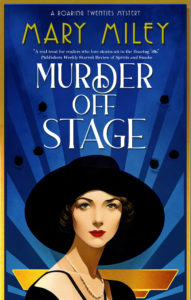 Murder Off Stage
Murder Off Stage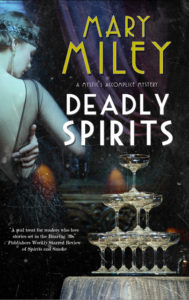


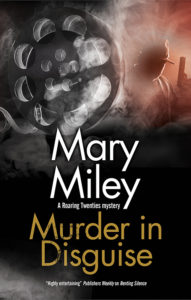
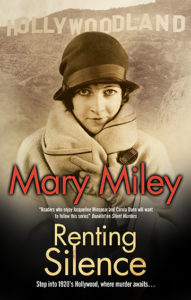
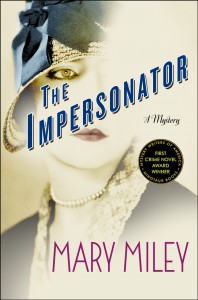
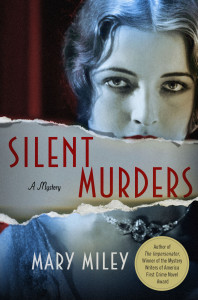


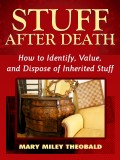





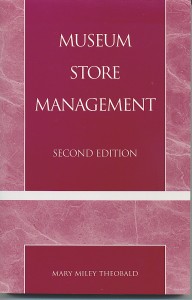

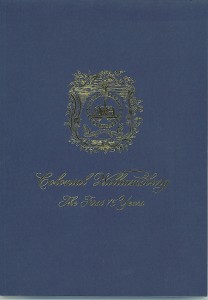





like me on Facebook follow me on twitter linkedin pinterest rss